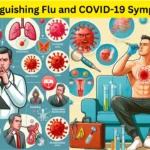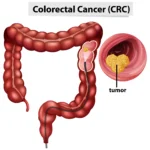Introduction
Today We Are Discussing on “At What Stage is Colon Cancer Curable?”
Colon cancer is a malignant disease that begins in the colon or rectum and is characterized by the uncontrolled growth and spread of abnormal cells.
Early detection and treatment are crucial in improving the chances of a successful outcome. By understanding the different stages of colon cancer,
individuals can be better informed about the curability and treatment options available.
Colon cancer is a serious disease that affects the colon or rectum. It is important to detect and treat colon cancer early in order to increase the chances of a successful outcome.
In this article, we will explore the different stages of colon cancer and discuss the curability and treatment options for each stage.
Understanding the Stages of Colon Cancer
Stage 0: Carcinoma in situ
Stage 0 colon cancer, also known as carcinoma in situ, refers to abnormal cells that are found only in the innermost lining of the colon.
It has not invaded deeper into the colon or spread to nearby lymph nodes or other organs. Treatment for stage 0 colon cancer usually involves surgery to remove the abnormal cells.
The prognosis is generally excellent, with a high chance of complete cure.
Stage 0 colon cancer is the earliest stage of the disease. At this stage, the abnormal cells are confined to the innermost lining of the colon and have not spread to other parts of the body.
Surgery is the primary treatment option for stage 0 colon cancer, as it allows for the complete removal of the abnormal cells. The prognosis for stage 0 colon cancer is generally excellent, with a high chance of a complete cure.
In addition to surgery, other treatment options for stage 0 colon cancer may include chemotherapy or radiation therapy.
These treatments may be used to further reduce the risk of recurrence or to treat any remaining cancer cells.
However, At What Stage is Colon Cancer Curable? the need for additional treatment will depend on the specific characteristics of the tumor and the individual patient’s overall health.
Stage I: Early-stage colon cancer/ At What Stage is Colon Cancer Curable?
Stage I colon cancer indicates that the tumor has grown through the innermost lining of the colon but has not spread beyond the colon wall or into nearby lymph nodes.
The tumor size is relatively small, and the prognosis is generally favorable. Surgery is the primary treatment option, and in some cases, additional chemotherapy may be recommended to further reduce the risk of recurrence.
Stage I colon cancer is still considered an early-stage disease, but the tumor has grown slightly beyond the innermost lining of the colon.
Surgery is the main treatment for stage I colon cancer, as it allows for the removal of the tumor and any nearby lymph nodes that may be affected. The prognosis for stage I colon cancer is generally favorable, with a high chance of a cure.
In some cases, additional chemotherapy may be recommended after surgery to reduce the risk of recurrence.
This is known as adjuvant chemotherapy and is used to kill any remaining cancer cells that may not have been removed during surgery.
The decision to undergo adjuvant chemotherapy will depend on the individual patient’s specific circumstances and the characteristics of the tumor.
Stage II: Localized invasion
In stage II colon cancer, the tumor has grown through the wall of the colon and may have invaded nearby tissues, but it has not spread to the lymph nodes or distant organs.
The treatment for stage II colon cancer typically involves surgery to remove the tumor. The prognosis varies depending on various factors, such as tumor size, location, and involvement of nearby tissues. Adjuvant chemotherapy may be recommended in certain cases to reduce the risk of recurrence.
Stage II colon cancer is considered a more advanced stage of the disease, as the tumor has invaded nearby tissues. Surgery is the primary treatment for stage II colon cancer, as it allows for the removal of the tumor and any affected nearby tissues.
The prognosis for stage II colon cancer can vary depending on the specific characteristics of the tumor, such as its size, location, and involvement of nearby tissues.
In some cases, adjuvant chemotherapy may be recommended after surgery to reduce the risk of recurrence. This is especially true for stage II colon cancer with a higher risk of recurrence.
Adjuvant chemotherapy aims to kill any remaining cancer cells that may not have been removed during surgery.
The decision to undergo adjuvant chemotherapy will depend on the individual patient’s specific circumstances and the recommendations of their healthcare team.
Factors Affecting Curability of Colon Cancer
Early detection through regular screenings plays a crucial role in improving the curability of colon cancer. Screenings help identify the disease at an early stage when it is more likely to be treatable.
The earlier colon cancer is detected, the higher the chances of successful treatment and cure. Regular screenings, such as colonoscopies, are recommended for individuals at average risk starting at the age of 50.
Regular screenings in terms of At What Stage is Colon Cancer Curable?
are essential for the early detection of colon cancer. Colonoscopies are considered the gold standard for colon cancer screening and are recommended for individuals at average risk starting at the age of 50.
During a colonoscopy, a healthcare provider examines the inside of the colon and rectum for any abnormalities, such as polyps or tumors.
Early detection allows for timely treatment, increasing the chances of a cure and improving overall survival rates.
If colon cancer is detected at an early stage, when it is still localized and has not spread to other parts of the body, the chances of successful treatment and cure are significantly higher.
This is why regular screenings are so important, as they can identify precancerous polyps or early-stage cancer before symptoms occur.
Tumor characteristics and genetics also influence the curability of colon cancer. Factors such as tumor size, location, and genetic mutations can impact the prognosis and treatment options.
Tumors located in the rectum, for example, may require different treatment approaches compared to those in the colon. Genetic factors, including certain gene mutations, can affect the aggressiveness of the cancer and response to treatment.
Patient-related factors, such as age, overall health, and fitness, can also influence the curability of colon cancer.
Younger patients generally have a better prognosis than older individuals. Good overall health and physical fitness can contribute to better treatment outcomes.
Additionally, how a patient responds to treatment, including surgery, chemotherapy, or targeted therapy, can affect the chances of a cure.
Treatment Options for Colon Cancer
Surgery
Surgery is a common treatment option for colon cancer and varies depending on the stage of the disease. For early-stage colon cancer, a procedure called a colectomy is performed to remove the tumor and a portion of the healthy colon.
In more advanced stages, a partial colectomy or a complete removal of the colon may be necessary. The outcome of surgery depends on the stage of the cancer, the extent of the surgery, and the overall health of the patient.
Surgery is often the primary treatment for colon cancer and can vary depending on the stage of the disease. For early-stage colon cancer, a colectomy may be performed. During a colectomy, the surgeon removes the tumor and a portion of the healthy colon.
This procedure aims to remove all cancerous cells and any nearby lymph nodes that may be affected.
In more advanced stages of colon cancer, a partial colectomy or a complete removal of the colon may be necessary.
The extent of the surgery will depend on the specific characteristics of the tumor and the individual patient’s overall health.
The outcome of surgery for colon cancer can vary, but it is generally a crucial step in the treatment process.
Chemotherapy
Chemotherapy is a systemic treatment that uses drugs to kill cancer cells or prevent their growth. It is commonly used in colon cancer treatment, particularly for advanced stages or when the cancer has spread to other parts of the body.
Chemotherapy may be given before surgery to shrink tumors or after surgery to reduce the risk of recurrence. Side effects of chemotherapy can vary but may include fatigue, nausea, hair loss, and increased susceptibility to infections.
Chemotherapy is often used in colon cancer treatment, especially for advanced stages of the disease. It can be administered before surgery to shrink tumors and make them easier to remove, or after surgery to reduce the risk of recurrence. Chemotherapy drugs are designed to kill cancer cells or prevent their growth.
Chemotherapy can have side effects, including fatigue, nausea, hair loss, and increased susceptibility to infections.
However, these side effects can be managed with appropriate medical care and support. The specific chemotherapy regimen will depend on the stage of the cancer, the individual patient’s overall health, and the recommendations of their healthcare team.
Targeted Therapy and Immunotherapy
Targeted therapy and immunotherapy are advanced treatment options that specifically target certain genetic mutations or immune system components involved in cancer growth.
These treatments can be used in certain cases of advanced colon cancer, particularly when specific genetic mutations are present.
Targeted therapy aims to block the growth signals of cancer cells, while immunotherapy enhances the body’s immune response against cancer cells.
The effectiveness and availability of these treatments may vary depending on the specific circumstances of each patient.
Targeted therapy and immunotherapy are innovative treatment approaches that have shown promising results in the treatment of advanced colon cancer.
These treatments specifically target certain genetic mutations or immune system components that are involved in the growth and spread of cancer cells.
Targeted therapy works by blocking the signals that allow cancer cells to grow and divide. This can help slow down or stop the progression of the disease.
Immunotherapy, on the other hand, enhances the body’s immune response against cancer cells. It helps the immune system recognize and attack cancer cells more effectively.
The effectiveness and availability of targeted therapy and immunotherapy may vary depending on the specific circumstances of each patient. Genetic testing may be necessary to identify the genetic mutations that can be targeted with these treatments.
The decision to use targeted therapy or immunotherapy will depend on the individual patient’s specific characteristics and the recommendations of their healthcare team.
Importance of Early Detection and Prevention
Regular screenings for colon cancer are essential for early detection, as they can identify precancerous polyps or early-stage cancer before symptoms occur.
Colonoscopies are considered the gold standard for screening and are recommended for individuals at average risk starting at the age of 50.
Other screening options /At What Stage is Colon Cancer Curable?
such as fecal occult blood tests and stool DNA tests, may be performed if colonoscopy is not feasible. Early detection allows for timely treatment, increasing the chances of a cure and improving overall survival rates.
Early detection and prevention are key in the fight against colon cancer. Regular screenings, such as colonoscopies, can detect precancerous polyps or early-stage cancer before symptoms occur. This allows for timely treatment and increases the chances of a cure.
Colonoscopies are considered the gold standard for colon cancer screening. During a colonoscopy, a healthcare provider examines the inside of the colon and rectum for any abnormalities,
such as polyps or tumors. If any abnormalities are found, they can be removed or further tested for cancerous cells.
In some cases, colonoscopies may not be feasible or preferred. In such situations, other screening options, such as fecal occult blood tests or stool DNA tests, may be performed.
These tests can detect blood or genetic abnormalities in the stool that may indicate the presence of colon cancer.
In addition to screenings, certain lifestyle modifications can help reduce the risk of colon cancer. Maintaining a healthy weight, adopting a diet rich in fruits, vegetables, and whole grains,
limiting red and processed meats, exercising regularly, avoiding tobacco and excessive alcohol consumption, and ensuring adequate intake of calcium and vitamin D are all important steps in reducing the risk of colon cancer.
By taking proactive steps to reduce the risk of colon cancer, individuals can play an active role in their own health and well-being.
Conclusion / At What Stage is Colon Cancer Curable?
In conclusion, the curability of colon cancer depends on various factors, including the stage of the disease, early detection, tumor characteristics, patient-related factors, and the chosen treatment options.
Understanding the different stages of colon cancer and the available treatment approaches is crucial for making informed decisions and maximizing the chances of a successful outcome.
Regular screenings, healthy lifestyle choices, and staying informed about the latest advancements in colon cancer treatment are essential in preventing the disease or detecting it early when it is most curable.
It is important for individuals to seek medical guidance and remain proactive in their own healthcare journey.
Other Helpful Articles:
Herbal Teas That Cleanse the Colon
How long can you live with colon cancer?
FAQ
1. What is stage 0 colon cancer?
Stage 0 colon cancer, also known as carcinoma in situ, refers to abnormal cells that are found only in the innermost lining of the colon. It has not invaded deeper into the colon or spread to nearby lymph nodes or other organs. Treatment for stage 0 colon cancer usually involves surgery to remove the abnormal cells. The prognosis is generally excellent, with a high chance of complete cure.
2. What is the primary treatment option for stage I colon cancer?
Surgery is the primary treatment option for stage I colon cancer. It involves removing the tumor and any nearby lymph nodes that may be affected. In some cases, additional chemotherapy may be recommended to further reduce the risk of recurrence.
3. What is the treatment for stage II colon cancer?
The treatment for stage II colon cancer typically involves surgery to remove the tumor and any affected nearby tissues. In some cases, adjuvant chemotherapy may be recommended after surgery to reduce the risk of recurrence.
4. What are the treatment options for colon cancer?
The main treatment options for colon cancer include surgery, chemotherapy, targeted therapy, and immunotherapy.
Surgery is often the primary treatment and involves removing the tumor and any affected tissues. Chemotherapy may be used to kill cancer cells or prevent their growth.
Targeted therapy and immunotherapy specifically target genetic mutations or immune system components involved in cancer growth.
The specific treatment options will depend on the stage of the cancer and the individual patient’s characteristics.










